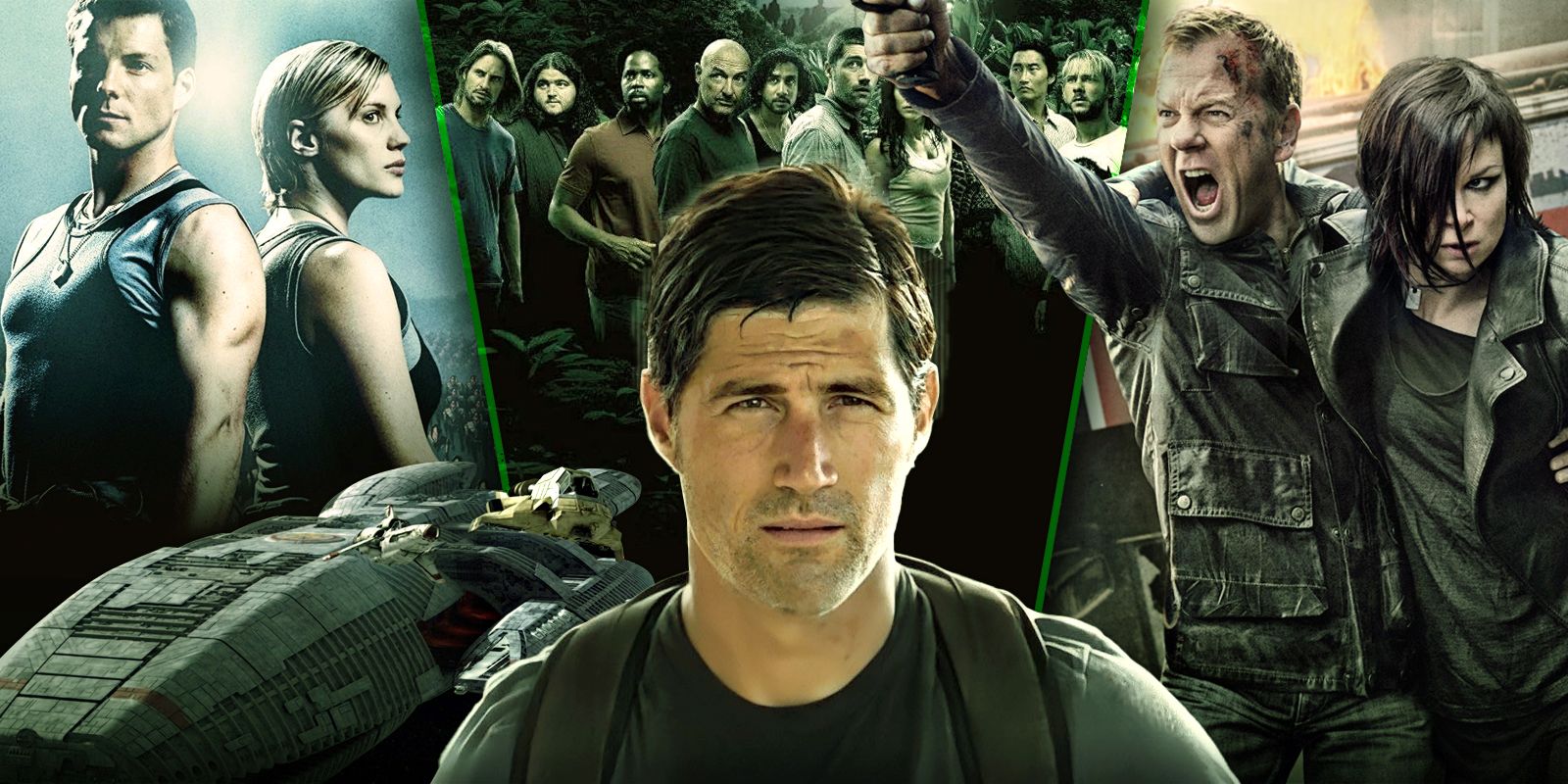
In the 2000s, television entered its golden era, with narratives, character growth, and production quality reaching unprecedented cinematic levels. Innovative cable networks and bold creators redefined viewer expectations for a show, transforming it into a deeper and more intricate art form. Once considered obscure or avant-garde, shows swiftly gained widespread cultural significance.
These television series, ranging from intense crime thrillers to pioneering science fiction, forge fresh paths and demonstrate that TV has the power and artistry equal to cinema. They push ethical boundaries, reinvent narrative arcs in serial storytelling, and spawn numerous imitators, leaving an indelible impression. Each one reshapes the potential of small-screen storytelling and serves as a source of inspiration for future creators.
The Sopranos Redefined TV Shows
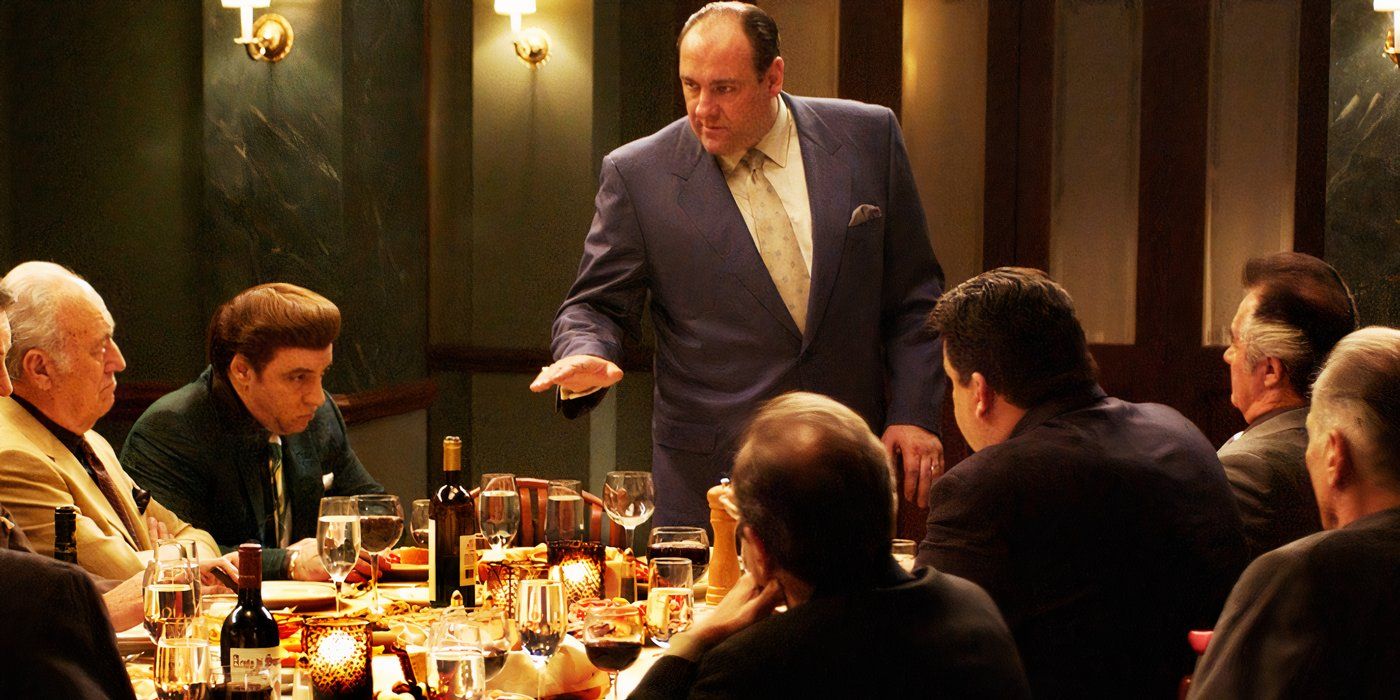
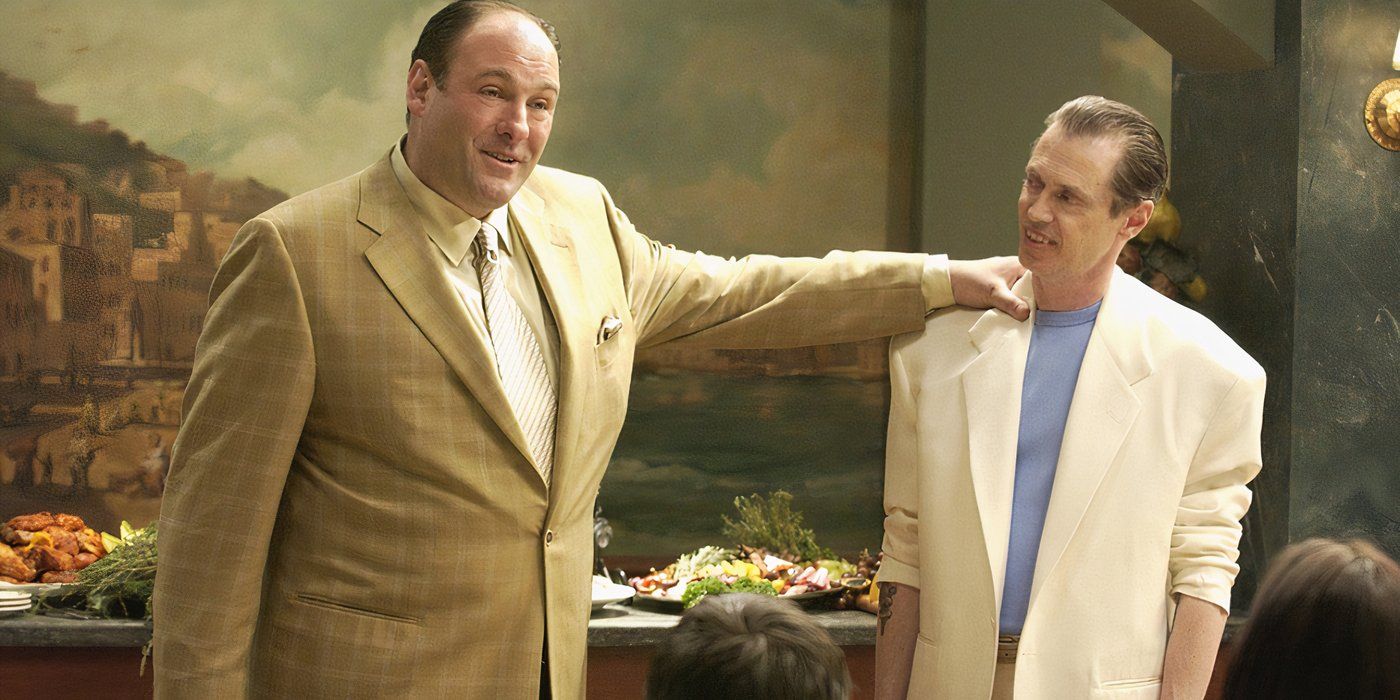
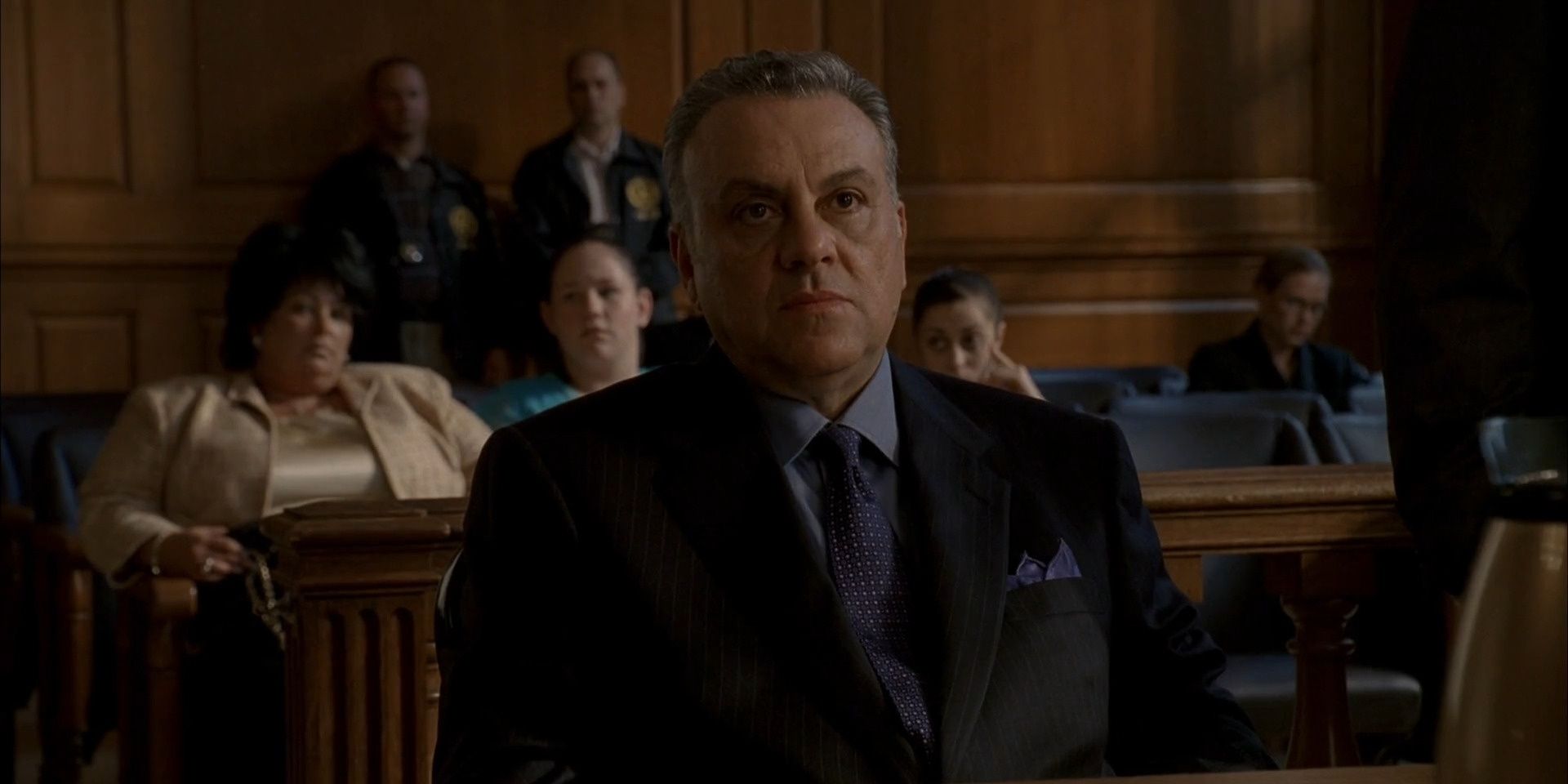
The show revolves around organized crime, presenting a unique television experience. It centers around Tony Soprano (James Gandolfini), a mafia leader who balances his life of violent crimes with therapy sessions. This series offers viewers complex, morally ambiguous characters and delves into deep psychological aspects. The show explores themes such as identity, masculinity, family issues, and dysfunction, all with the ambition of cinema-quality storytelling.
The fact that it has been successful demonstrates that cable networks can produce top-quality, mature dramas, opening doors for future acclaimed productions. In terms of its intricate storylines and chilling finale, The Sopranos pushes the boundaries of what television is capable of. It has served as an inspiration for numerous writers and showrunners to take daring creative leaps and delve into complex, morally ambiguous characters. This series signifies the transition of television from being merely entertainment to a form of art, and the emergence of antiheroes as a common trope.
The Wire Elevated The Crime Genre
The Wire delves beyond crime to examine the systemic issues plaguing American cities, particularly Baltimore. The series offers an intricate look into the complex web of institutions such as law enforcement, education, politics, labor, and media. David Simon skillfully constructs a multi-layered narrative that unfolds gradually, drawing heavily on realism and investigative research. Rather than presenting traditional heroes, the story focuses on imperfect individuals trapped within dysfunctional systems.
The complex design and deep exploration of sociopolitical issues make this show particularly appealing to thoughtful viewers who are willing to be patient. Consequently, it has earned acclaim from critics, despite not always finding mainstream popularity during its initial broadcast. With each new season, the storyline subtly shifts, revealing how dysfunction permeates various institutions. The dialogue is incisive, the acting gritty, and the themes enduring. It pushes the boundaries of what television is capable of.
Lost Featured Mythology, Mystery, and Serialized Obsession
Lost revolutionizes network television through its daring, imaginative plotlines. A plane crash leaves survivors marooned on an enigmatic island inhabited by polar bears, enigmatic smoke creatures, and concealed hatches. Beneath the surface of this science-fiction mystery lies a profound character drama unfolded via complex flashbacks. The creators skillfully weave together a wide-ranging narrative that combines mythology, science fiction, and emotional journeys. Lost paved the way for the contemporary serialized style on network TV, captivating audiences with weekly cliffhangers and a labyrinthine web of mysteries.
Lost serves as a groundbreaking example in TV history, pioneering the trend for shows that encourage active viewer engagement and appreciation through intricate storylines and detailed character development. Despite its controversial conclusion, the series significantly altered the way audiences interact with television, fostering online fan communities, recap culture, and intense speculation that continue to be prevalent in contemporary shows.
The Quiet Desperation of Walter White
Fundamentally, “Breaking Bad” revolves around a man driven to extremes. Initially, Walter White, portrayed by Bryan Cranston, isn’t an evil character. He is a humble, overqualified teacher, facing a terminal illness, and a family he yearns to support financially. However, as he ventures into the world of methamphetamine production, he uncovers something chilling: he finds a liking for power. In essence, Vince Gilligan’s meticulously crafted series delves into how fear can transform into arrogance and desperation into devastation.
Displaying captivating acts by Bryan Cranston and Aaron Paul, the show skillfully portrays a chilling depiction of metamorphosis. Refusing to shy away from the repercussions, it compels spectators to ponder their own actions if they were in Walter’s position. The series is gripping, artfully filmed, and ethically challenging, managing to stir emotions even when viewers are aware that things will not have a happy ending.
Humanity Is Tested in the Stars
The TV series “Battlestar Galactica” commences with a tragic event: the brink of human extinction. Consequently, the show unfolds as a captivating portrayal of our world. After the destruction, a band of survivors journey in quest of Earth, all the while pursued by their creators turned adversaries – the Cylons. It is an intensely emotional, character-focused narrative exploring themes of survival, selfhood, and what truly defines humanity.
As a devoted viewer, I can say this reboot doesn’t merely update science fiction; it breathes life into it. “Battlestar Galactica” masterfully tackles themes of war, civil rights, and trauma using complex characters such as Admiral Adama (Edward James Olmos), Starbuck (Katee Sackhoff), and President Roslin (Mary McDonnell). The show is a gripping blend of tension, rawness, and profound philosophy. It’s the human touch that sets it apart and elevates it to new heights.
A Monster with a Moral Code
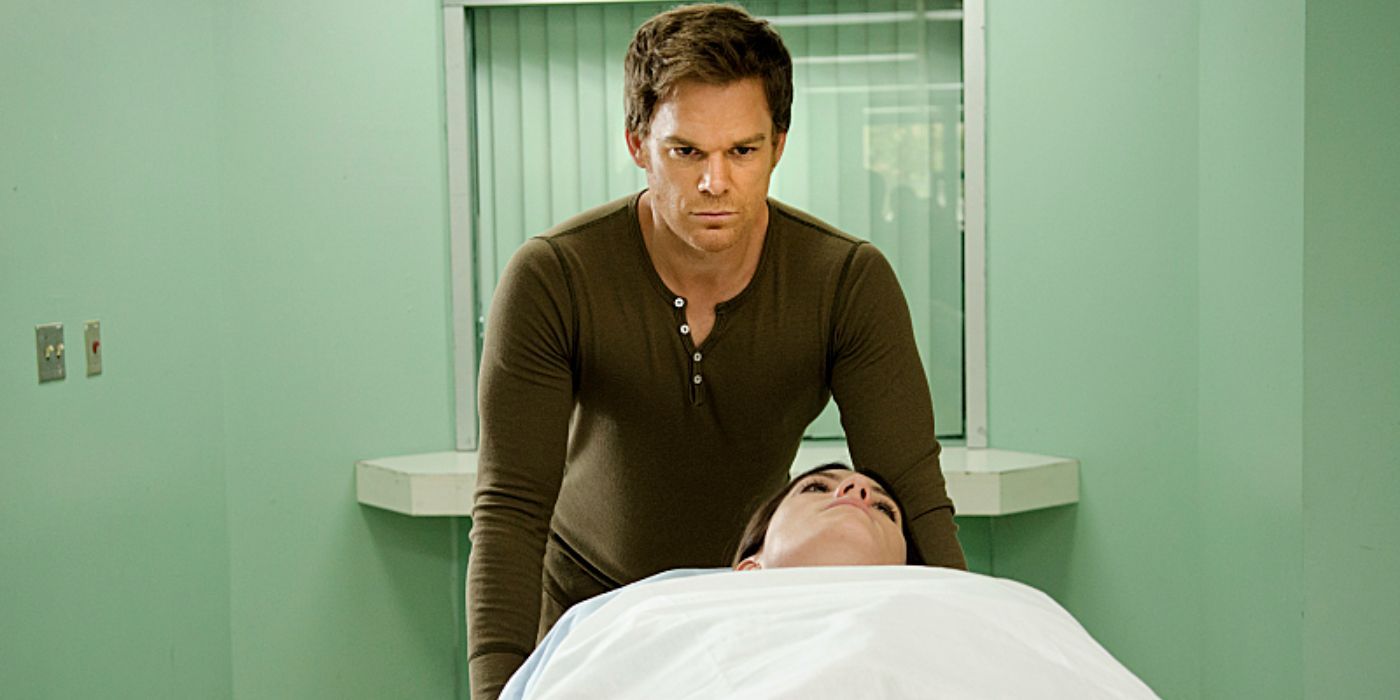
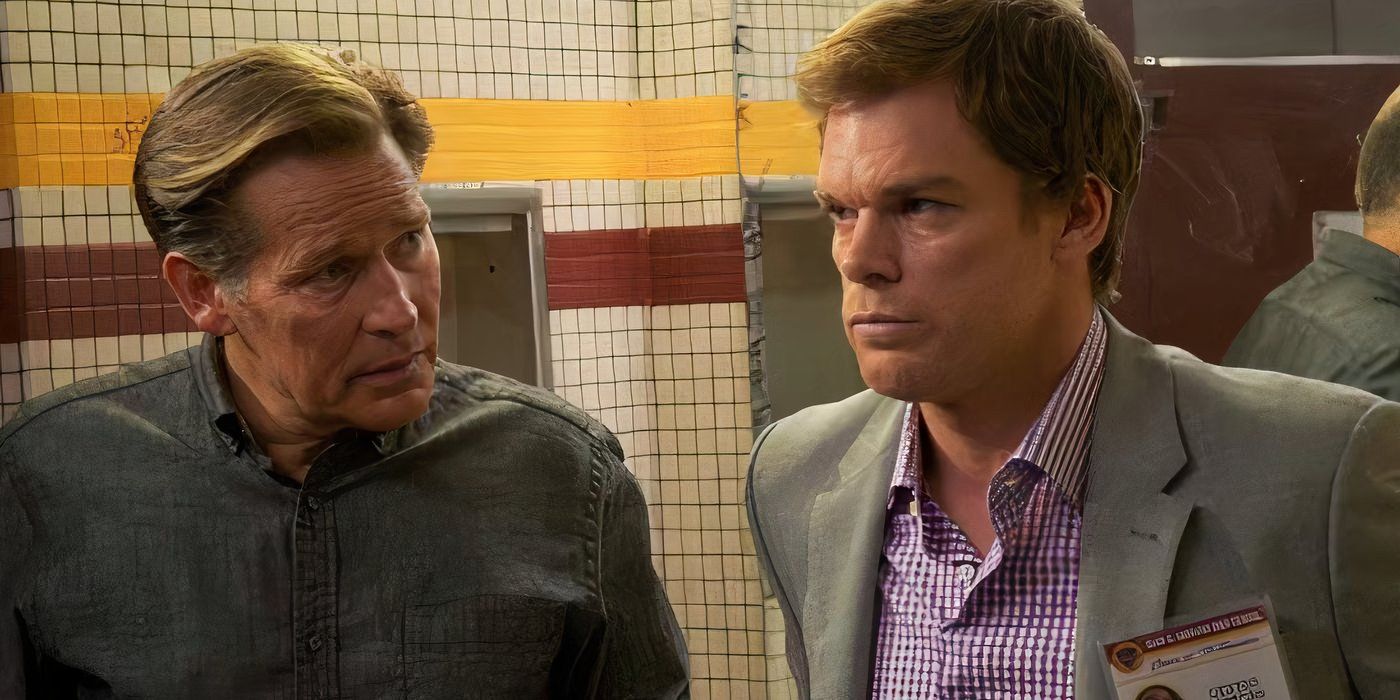
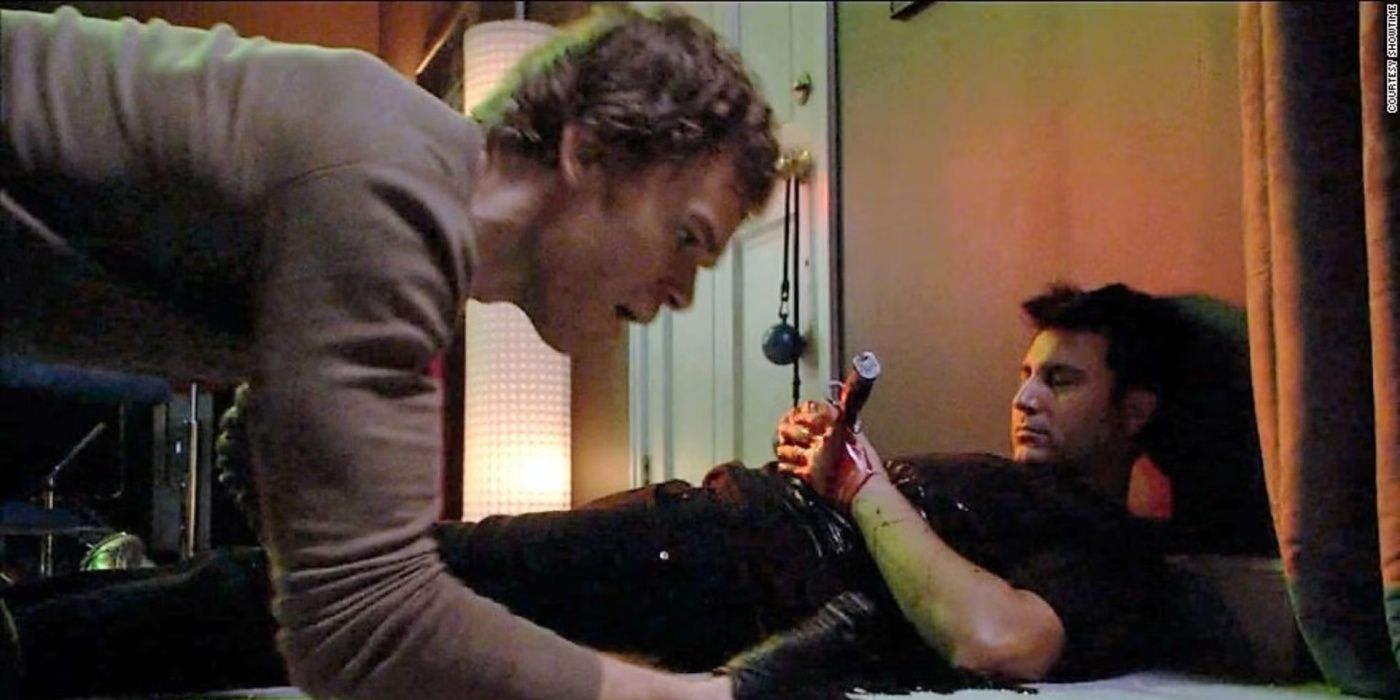
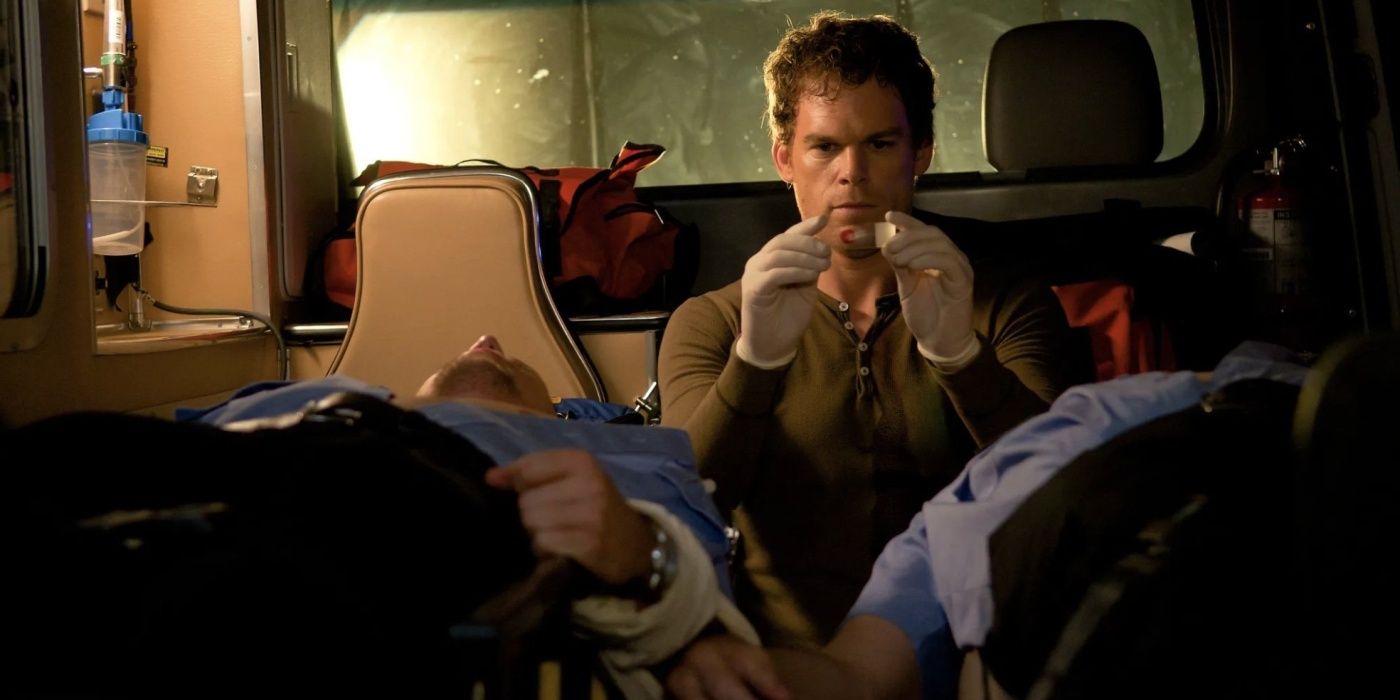
In this innovative series, we meet Dexter Morgan, a forensic analyst portrayed by Michael C. Hall, who has an unusual habit of eliminating the wicked. Remarkably, viewers find themselves supporting his actions, showcasing the intricate moral dilemmas at the heart of this gripping drama. As the story unfolds, we delve into Dexter’s moral compass through flashbacks, revealing a character who is meticulous yet socially inept, detached yet surprisingly empathetic.
The series delves into the complexities of pretending to be human and whether genuine relationships can exist for a figure like Dexter. It’s a mix of darkness and unexpected emotion. The show challenges viewers to empathize with the character’s intentions. This groundbreaking TV series played a significant role in shaping the genre of television antiheroes, causing audiences to reconsider their notions of justice.
Characters Reveal the Cost of Reinvention
Mad Men focuses more on the people involved in advertising than the industry itself. At its core is Don Draper (Jon Hamm), a man who combines a glamorous profession with a troubled past. He’s charismatic, intelligent, and tragically adrift. Matthew Weiner’s show delves deeply into themes of identity, aspiration, and solitude in a rapidly evolving America, unfolding at a deliberate, contemplative pace.
The backdrop of the 1960s is both alluring and harsh, showcasing the era’s sophistication as well as its inequalities. What sets Mad Men apart is its authenticity. Characters grapple with their identities and societal expectations. Relationships disintegrate. Ambitions climb then plummet. With its insightful dialogue, breathtaking visuals, and profound emotional depth, Mad Men does not merely depict the past. It aids us in comprehending the present.
Grey’s Anatomy Featured Female Leads & a Diverse Cast
Grey’s Anatomy soon transcended being merely a hospital drama, evolving into a true cultural sensation. Produced by Shonda Rhimes, it skillfully combines thrilling medical scenarios with intricate, emotionally intense character development. Meredith Grey (Ellen Pompeo) serves as the focal point, her voiceovers providing insightful introspection to introduce each episode. The show is groundbreaking in its dedication to diverse casting and multifaceted female protagonists. This sets a precedent for more varied narratives on prime-time television.
Over a long period, the series Grey’s Anatomy delves into intense relationships reminiscent of soap operas, maintaining viewers’ emotional engagement episode after episode. Its ability to address real-life matters such as race, class, sexuality, and mental health gives its drama substance. The longevity, influence, and characteristic emotional moments of Grey’s Anatomy do not merely persist; they grow and change.
One Man, One Day and Endless Pressure
24 revolutionizes the television thriller genre by adopting a real-time format and maintaining an unyielding tempo. Each season follows a 24-hour timeline, with each episode representing one hour of mounting tension. Character Jack Bauer, played by Kiefer Sutherland, is a counterterrorism operative who must make swift decisions. He navigates moral ambiguities, frequently putting his own life at risk to save others. The series mirrors its era by depicting heightened anxieties about terrorism, national security, and the ethical dilemmas faced during emergency situations.
As a die-hard film enthusiast, I can’t help but see Jack Bauer as a beacon of raw efficiency and emotional reserve, burdened by the heavy emotional weight of each mission he undertakes. His unwavering loyalty to nation, family, and duty shapes his character profoundly, while his suffering and solitude imbue the series with a deep emotional resonance. Pioneering narrative strategies, pulse-pounding plotlines, and extraordinary acting performances make 24 revolutionize the way television tackles action, tension, and serial storytelling.
Ordinary People With Extraordinary Hope
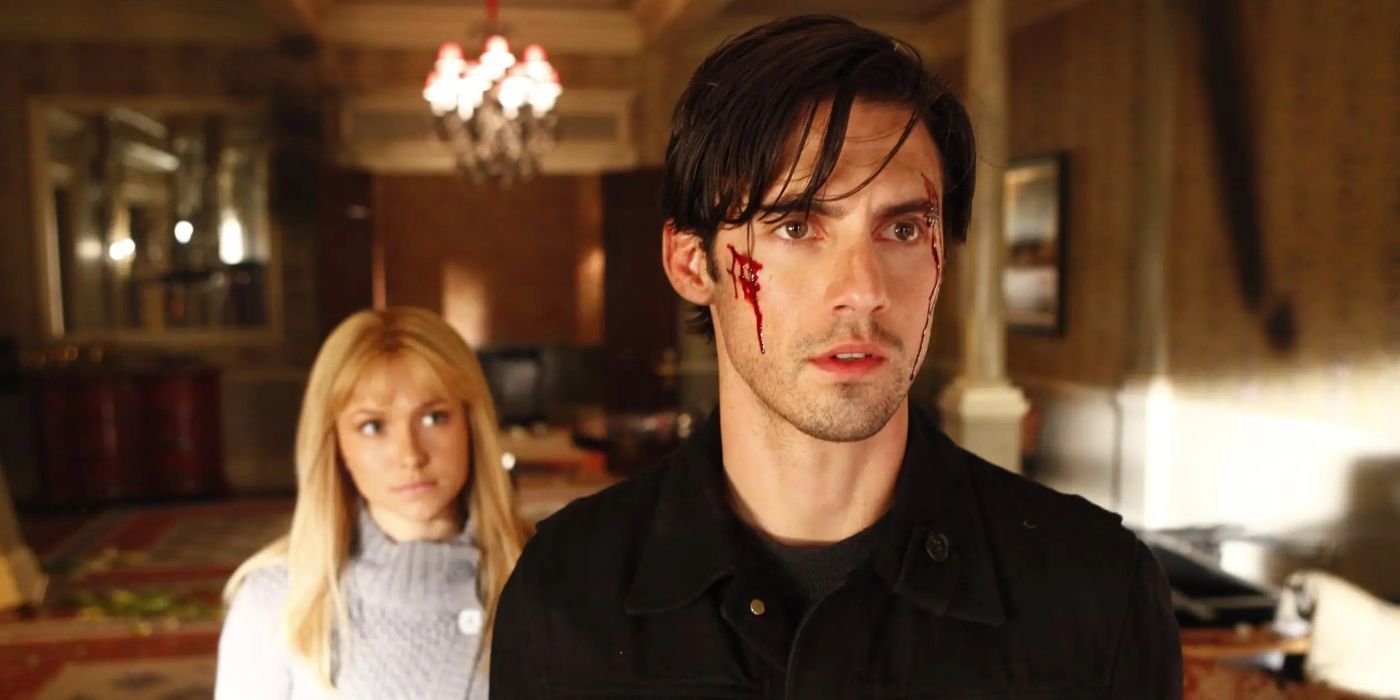
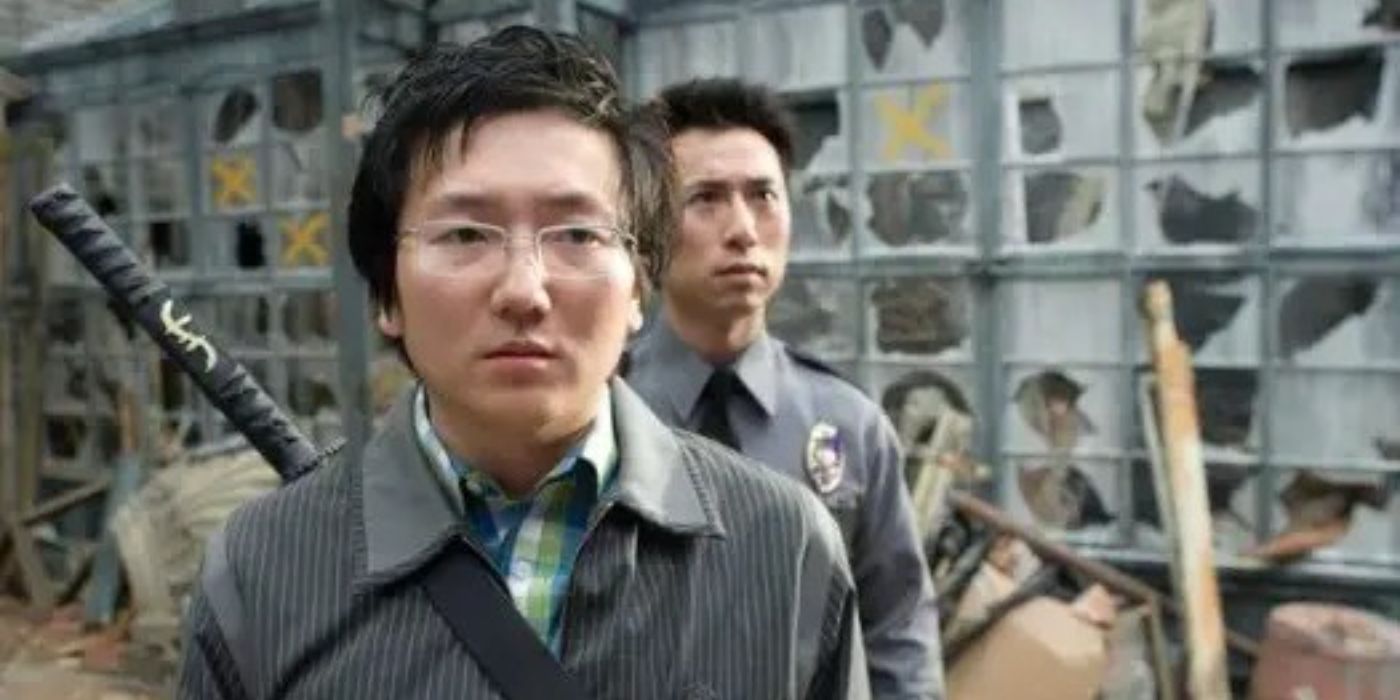
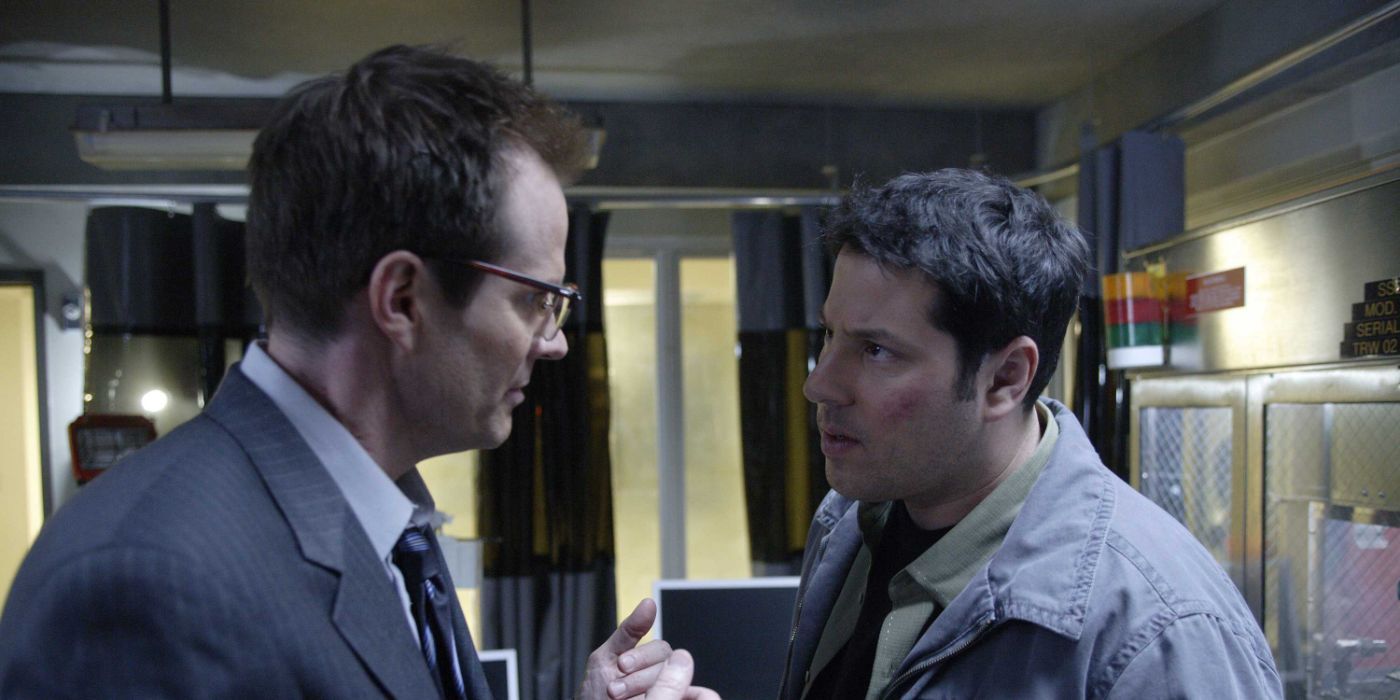

The series “Heroes” offers a cinematic scale and emotional richness seldom found in broadcast television. It portrays individuals worldwide who uncover extraordinary talents such as teleportation, healing, and mind-reading. As they delve into the effects these abilities have on their lives, the show goes beyond mere spectacle to investigate themes like identity, purpose, and interconnectedness.
Characters such as Hiro Nakamura (Masi Oka), Claire Bennet (Hayden Panettiere), and Peter Petrelli (Milo Ventimiglia) strike a chord because they are deeply rooted in genuine emotional conflicts. The first season stands out due to its meticulous writing and bold construction, skillfully intertwining worldwide narratives with a feeling of wonder and urgency. Before the superhero genre took over pop culture, this show demonstrated its impact. However, although later seasons faced challenges, its lasting impression is undeniable.
Read More
- WCT PREDICTION. WCT cryptocurrency
- LPT PREDICTION. LPT cryptocurrency
- Chrishell Stause’s Dig at Ex-Husband Justin Hartley Sparks Backlash
- Guide: 18 PS5, PS4 Games You Should Buy in PS Store’s Extended Play Sale
- The Bachelor’s Ben Higgins and Jessica Clarke Welcome Baby Girl with Heartfelt Instagram Post
- Gold Rate Forecast
- PI PREDICTION. PI cryptocurrency
- SOL PREDICTION. SOL cryptocurrency
- Grammys Pay Emotional Tribute to Liam Payne in First Honorary Performance
- Has Unforgotten Season 6 Lost Sight of What Fans Loved Most?
2025-05-31 19:10
